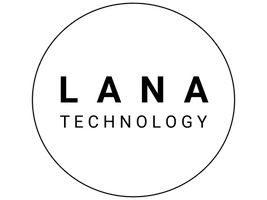No matter how small your business is, it’s important to keep track of your numbers from day one so that you can have visibility on your performance, and spending and to maximise your resources.
The best way to do this is of course through accounting software – all businesses need accounting software to help them run their finances.
However, they are predominately made to be used by accountants and bookkeepers.
When it comes to choosing the right accounting software for your business it often gets deferred to the accountants or the bookkeeper.
So what happens if you don’t have the luxury of working with an accountant? How do you choose the right accounting software and which one is the easiest for you to use?
Recommendations
If you’re in a hurry, here’s an overview of the easiest accounting software for small business owners:
- Ease of use – LANA
- Integration – Quickbooks
- Compliance reporting in the UAE – LANA
- Plug and play modules – Zoho
- Handling complex accounting – Xero
How did we choose these accounting platforms?
Let’s look at the criteria we used and then take a deeper into each software.
Criteria for Choosing the Easiest Accounting Software
1. Business Model
Understand your invoicing needs in relation to your service agreement.
Recognize the importance you assign to this aspect over other features.
This understanding and prioritization will aid in choosing the right accounting software for your business.
2. Ease of use
Consider who will use the accounting software in your company.
This helps decide if simple or more complex software with wider options is better.
It will also aid in understanding if your team needs to allocate time for learning and implementation.
3. Cost
Cost is a critical factor, depending on your company’s growth stage.
Sometimes, the most expensive, top-tier software isn’t the best choice for your company.
For instance, if your company is in the early growth stage, you might prefer a standard accounting software.
This simpler choice allows you to focus on other growth-driving areas.
4. Features
Each accounting software has its unique focus and strengths.
Some emphasize invoices, others operations, and some offer flexibility.
Determine which features are crucial for your business.
Consider how software can automate your operations and minimize repetitive tasks for maximum efficiency.
This should be achievable without a heavy capital investment.
5. Integrations
Finding a single software to manage all business operations is impossible.
A typical startup might have around three types of software: CRM, accounting, and HR.
Therefore, it’s essential that these systems interconnect, eliminating manual tasks.
This reduces the team’s workload and provides real-time data.
Such proactive decision-making can be crucial for your company’s survival.
6. Customer support
All systems can experience errors and downtime, potentially impacting your services and causing chaos.
Hence, choosing a system with proper support is crucial as it affects your business and reputation.
Appropriate support involves not just quick response times, but also data security, data backup, swift recovery of data, and time zone alignment with your service market, among others.
Top 5 Easiest Accounting Software for Small Business
We can generally agree that most accounting software on the market is designed for accountants and bookkeepers.
For individuals without financial training, these can be overwhelming.
Let’s take a closer look at the easiest accounting software:
1. LANA
LANA breaks from traditional accounting software norms with its simple look and feel.
Designed specifically for small businesses with limited accounting knowledge, it has a user-friendly interface.
Its buttons are straightforward, easy to navigate, and come with dropdown options.
LANA’s mission is to simplify accounting principles and automate your finance function without a steep learning curve or the need for expert financial knowledge.
This is achieved through years of studying company behavior to identify and categorize commonly used expenses.
These are then mapped to a standardized chart of accounts with built-in workflows and accounting file management.
This makes LANA incredibly effective.
As simple as entering an invoice, the software does all the accounting work automatically in the backend.
2. Quickbooks
QuickBooks, created by Intuit, targets small businesses.
It’s a cloud-based software with a typical accounting software interface.
However, compared to other products on the market, QuickBooks is considered the most user-friendly.
While it’s not hard to learn, effective use of QuickBooks requires an understanding of bookkeeping.
This knowledge is necessary for correctly setting up the chart of accounts for the business.
3. Zoho
Zoho Books is the preferred accounting software for many young businesses.
It offers a broad range of modules and automation tools with scalability.
Numerous ‘How to’ videos are available, making the software more accessible to users.
However, similar to QuickBooks, using Zoho Books effectively requires some understanding of accounting.
4. Xero
This is a powerful accounting software.
However, its downside is that it’s primarily designed for experienced accountants and bookkeepers.
This means it might not be the easiest to use and can have a steeper learning curve.
5. Wafeq
Waqef focuses on invoicing and compliance for SMEs in the UAE, KSA, and Egypt, in accordance with local tax authorities.
Its ease of use is comparable to Zoho and QuickBooks, with a similar dashboard look and feel.
Detailed Comparison of Each Accounting Software
| Xero | Quickbooks | Zoho | LANA | Wafeq | |
| Key functionalities and features | * Multi modules that plug and play to suit your company including expenses, inventory and payroll * Pay bill fast payment link on invoices issued * OCR * Bank integrations * Bank reconciliation * Customisable reports | * Multi modules that plug and play to suit your company including expenses, inventory and payroll * Pay bill fast payment link on invoices issued * Bank integrations * Easy Tax tracking * Customisable reports | * Multi modules that plug and play to suit your company including expenses, inventory and payroll *FTA Accredited * Bank integrations * Bank reconciliation * Large variety of reporting templates | * Automated accounting workflow with standardise procedures * Automated accounting file managedment * Automated UAE VAT Return * Dashboard with key statistic * Manage expenses * Daily UAE Central Bank exchange rate * Reporting aligning to IFRS * Payroll | *Bulk invoicing * Large range of reports *FTA and ZAKAT compliant * Stripe integration * Pay bill fast payment link on invoices issued * Expenses * Payroll |
| Pros | * Extensive reporting and analysis * Clean interface | * Integration capability * Full service mobile app | * Adaptability due its range of modules * Easy inetragtion with other Zoho products | * Digitise finance department * Access all documents at your finger tips that aligns with IFRS | * Tax compliance * Bulk invoicing |
| Cons | * Some features may be hard to understand for limited accounting knowledge * Restricted project management tools | * User number limitation * Scalability due to core focus on “small business”. | * Navigation * Limited 3rd party integrations | * No bank or 3rd party software integration | * Limited integration |
| Pricing plan | From $13 per month | Free for 30 days and from $1 per month for the next 6 months (Promotion) | Free for annual revenue AED 200k or less and from AED 60 per month | Free for 1 month and from $35 per month | Free for 14 days and from AED 69 per month |
| Interface and ease of use | Traditional but clean look and feel that is easy to use | Traditional but clean look and feel that is easy to use | Traditional but clean look and feel that is easy to use | Modern app look and feel and not traditional with simple to use | Traditional but clean look and feel that is easy to use |
| Customer support and resources | 24/6 | 24/7 | Sunday to Friday 9am to 8pm | Calendly 1 to 1 booking | 24/7 |
| Company Founded in | 2006 | 1983 | 2011 | 2022 | 2019 |
Conclusion
Selecting the right accounting system should simplify your operations.
It’s important to understand your business model, team strengths, and available resources.
If you lack accounting knowledge or resources to hire, consider a system that is easy to understand and use.
Choose software that ensures compliance, provides real-time reporting, and doesn’t require a steep learning curve.
This allows for effective resource use and proactive response to change.
Business owners often lose sleep when they’re uncertain about their company’s financial state, potential constraints, or financial runway.
Therefore, it’s vital to choose the right accounting software.
It should track your financial numbers and provide necessary data for informed decision-making in a timely manner.




